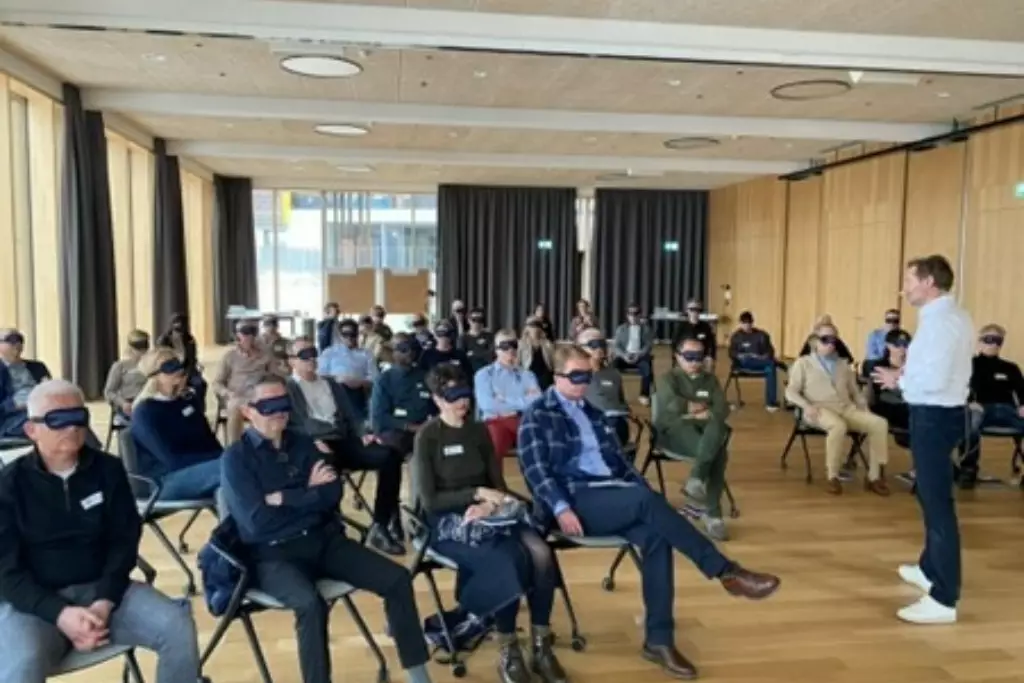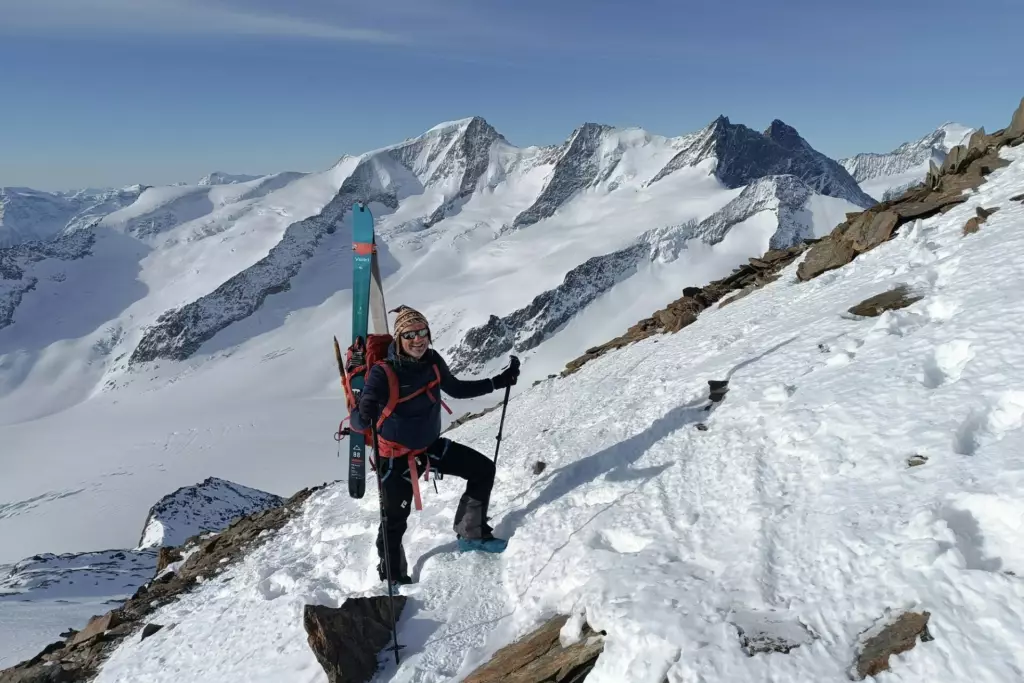Get in touch
Ever been grounded? What can we learn of it?

- Duration
- 10 min read
- Author
- By Ekki
It was diligently planned as a typical week in a busy period of the year when many clients define their priorities for the coming year, sharpen their purpose, address team dynamics, or celebrate recent achievements:
- Executive workshop on Monday and Tuesday in the Bernese Alps
- A day and a half in the office for planning and proposal writing
- Thursday to Saturday a Mountain Event at Guarda Val in Lenzerheide
- Flying out Sunday to Hamburg to kick off an executive workshop in the evening and following Monday (with growing concerns in relation to external noise like the Lufthansa strike)
- Another executive workshop in Switzerland from Tuesday to Thursday
- Leaving on the following Saturday for Latin America for a sequence of three workshops in the Chilean Andes and the Pacific coast
As you can probably already anticipate, it didn’t go as planned. On my drive home on Tuesday evening in heavy rain and heavy traffic I realized I was struggling to see the curvy mountain road through the wet windshield and fast moving wipers. I made an early morning appointment with my ophthalmologist. After a thorough check, instead of sending me home she sent me directly to the University Hospital in Zurich and asked me to stay sober. Once at the Hospital, after managing to register without documents nor IDs I underwent additional checks and at around noon I was given a pink hand bracelet marking my new status as stationary patient. The wanderer was now grounded.
Diagnosis: Retinal Detachment. Surgery was promptly scheduled for the morning after. This was about to be my first night in a hospital since I was born many, many years ago. On Thursday morning I underwent surgery which included to fill my eye with a gas that was meant to push the Retina back in its place. The condition of a gas filled eye makes flying and going above 1'000 meters above sea level very dangerous for the healing process; therefore, the experience of being grounded might very well continue for some time… My condition is visualized by a red bracelet which ensures that in case of an accident the emergency team doesn’t put me in a helicopter.
There are a couple of impressions, experiences and lessons learned that I have found worth sharing:
- It is really great to have a support network: my wife Carolina drove me to the ophthalmologist and then on to the hospital. I first suggested that she drops me off at the entrance but she insisted to come with me. My daughter Anna visited me in the afternoon and she typed some emails for me that I found couldn’t wait. My brother and sister called as soon as they heard of my condition. Friends offered help. And my project manager and sum partners immediately jumped in to solve pending topics. It is really great to have family, friends and partners around; in such situations, it feels more crucial than ever.
- Having successors or partners makes business life more sustainable. It became very clear that I was not able to facilitate some of the upcoming workshops (I am still debating with myself how early I can get back to normal; but I understand that the doctor has a say here..); luckily enough for most of the upcoming workshops I had invited a co-facilitator. These friends and business partners immediately stepped up and with some minor alignment over the phone they took the opportunity/challenge to facilitate the workshop on their own. And as far as the clients are concerned: they also understand that such things happen and that jointly these situations can be addressed and a viable solution be put in place.
- Vulnerability and dependence is part of human essence; as mentioned above this was my first night at a hospital and my first surgery ever. Not that I felt to be invincible, but somehow, I was fortunate to never have missed a day at work or cancelled my participation at a workshop. And now I was lying on that bed being pulled to the surgery room. The view of the ceiling lights as I was passing through the corridors, being attached to machines and cables, the limited vision affected by the eye drops to widen my pupil, all gave me a deep sensation of vulnerability and being at the mercy of others. Nothing I could do to fix the situation. The problem was well beyond my abilities and strengths. As a wanderer in the mountains I have always been big on autonomy; and now, I was completely dependent on the expertise and care of people I had never met before. A Mountain Wisdom friend and priest, Patrick Schwarzenbach, once told me: "Ekki, your drive towards autonomy and being in control is a complete illusion. You are born dependent, you will die dependent, and actually being dependent is what makes us human as it is in our human nature to care and support each other". I thought of him and his words as I was lying on this bench, covered by a warm linen and gently snoozing away.
- It feels great to be looked after by a high performing team; the team at the university hospital Zurich has been fantastic. The level of professionalism, their checks and confidence create a level of trust, that it will all be good. They operate with short and precise comments, calm and concentrated, and always including short checks with the patient. No time is wasted, but it also doesn’t feel rushed. Each one has his or her role, they support each other, and share observations that might be relevant for the colleague. I was only locally sedated so I could follow the conversation. And the collaboration didn’t just happen in the surgery room; the care taking team, the hospitality team, the initial exams team, they all delivered effective and human hand overs with clear interfaces and short encouraging words.
- I am a fan of diverse multicultural teams; during my 48 hours at the hospital I met several Swiss, a couple of Germans, but also Slovak, Thai, Hongkong Chinese, Afghan, Croatian, Spaniard, Indian, … I loved to hear their stories and accents and sense their commitment to the purpose of the place. I am aware of partly critical comments in media and politics about the increase of foreigners in the Swiss health care system. As a patient, I must say: I am a fan. I felt the tremendous wealth of profiles and expertise, the shared purpose and professional standards with personal notes.
As I prepare to leave the hospital, hopefully with recovering eye sight and step by step planning my return to normal, I wanted to leave you with a couple of questions:
- Do you have a support network around you? Are you serving as support network for your people?
- Do you have successors in place or professionals who can jump in and replace you?
- How do you deal with vulnerability?
- How do you deal with dependency?
- Have you ever tasted the experience of being looked after by a high performance team?
- What is missing in your team to be a high performing team? the purpose? the collaboration? diversity?
The dominant feeling right now is gratefulness: for being able to see; for feeling supported; for experiencing the care of friends, family and partners; for having institutions that provide excellent care; and for feeling human being looked after by fellow humans.
And a cliché quote comes to my mind: "l’essentiel est invisible pour les yeux" says le petit prince, another wondering wanderer on this planet.
Love,
Ekki
Latest Field Notes
More field notes that may interest you.

Go home - going home

Your Leadership Space – Obstacle or Enabler?
